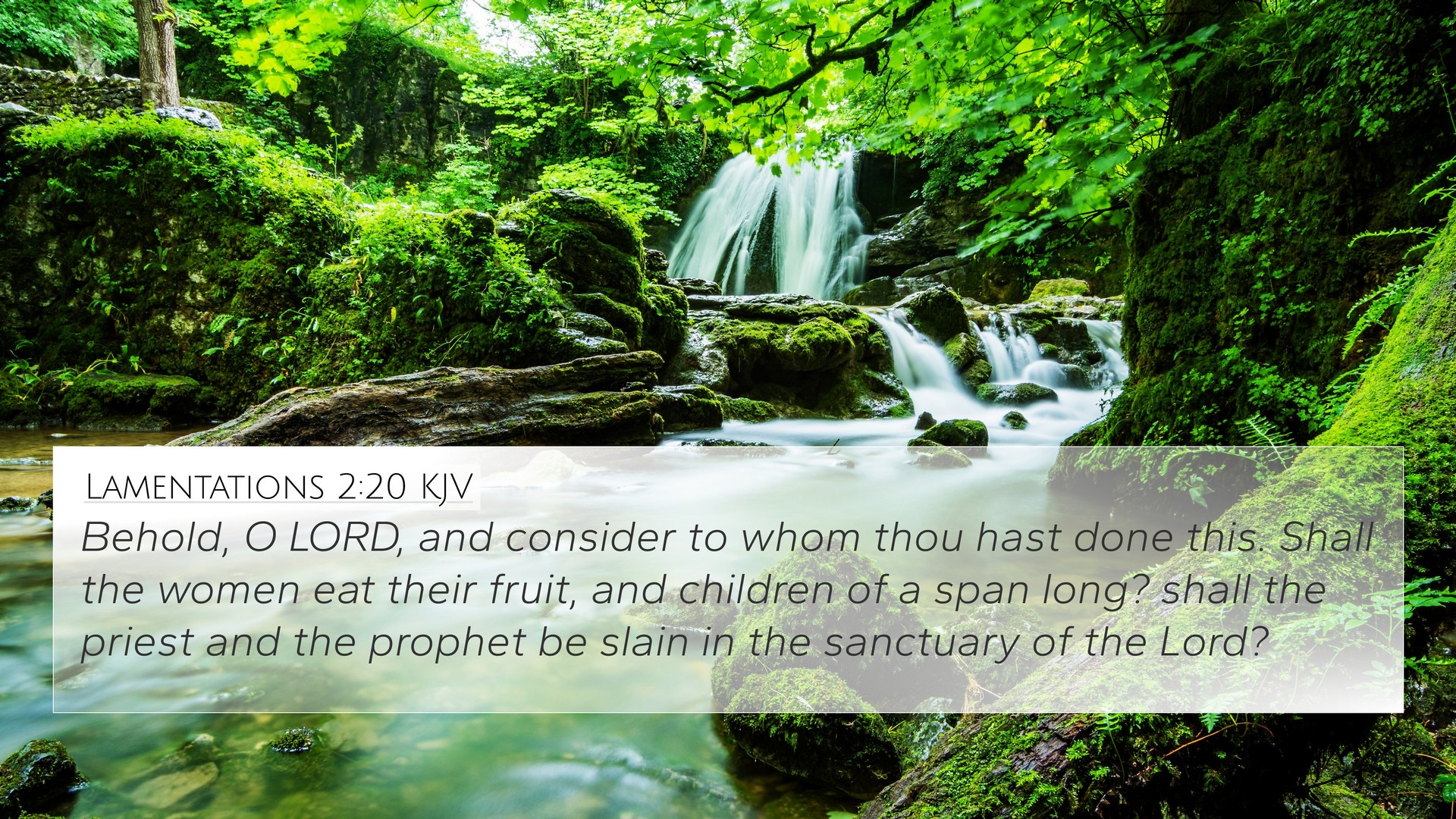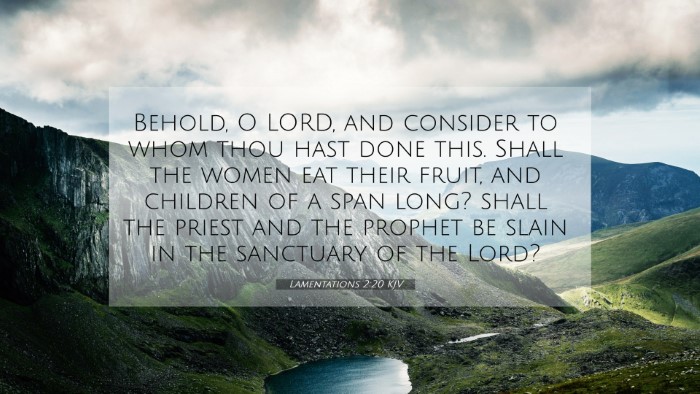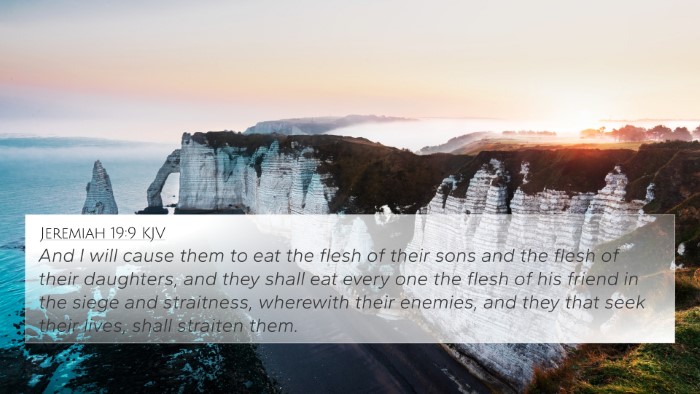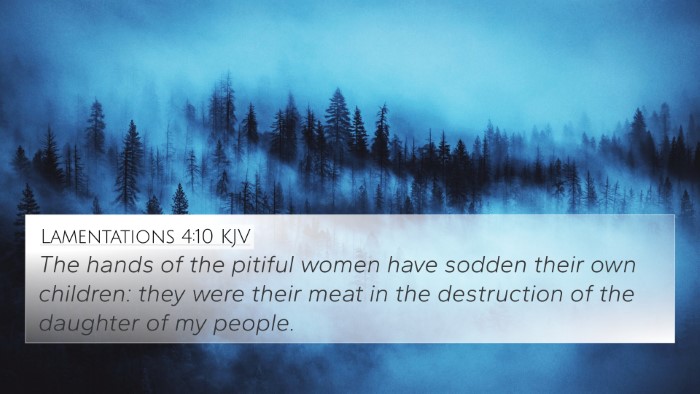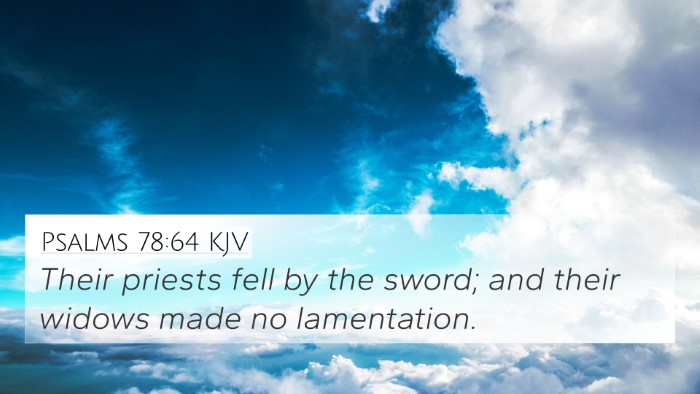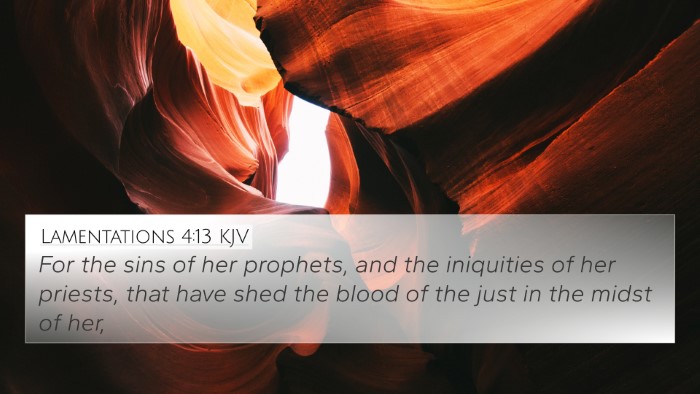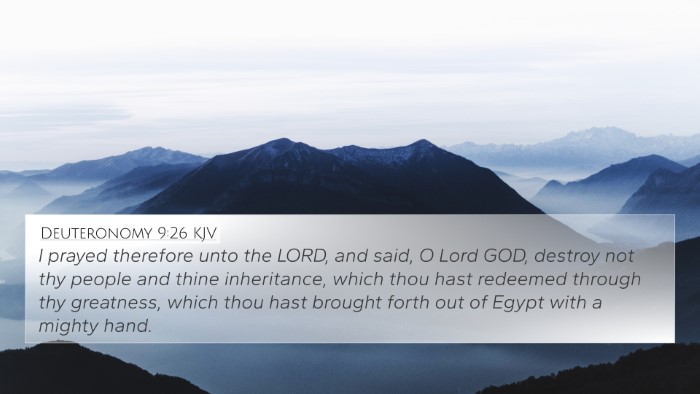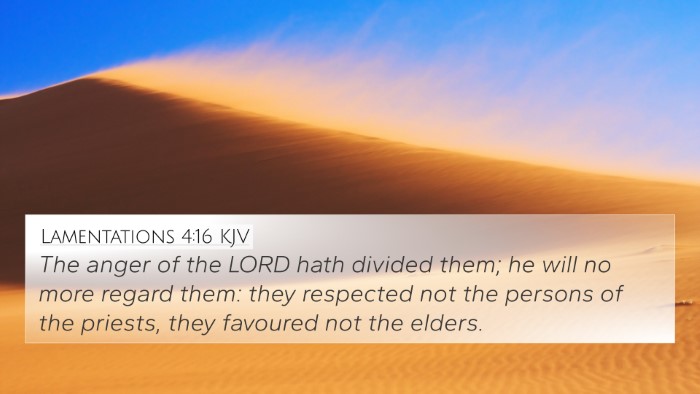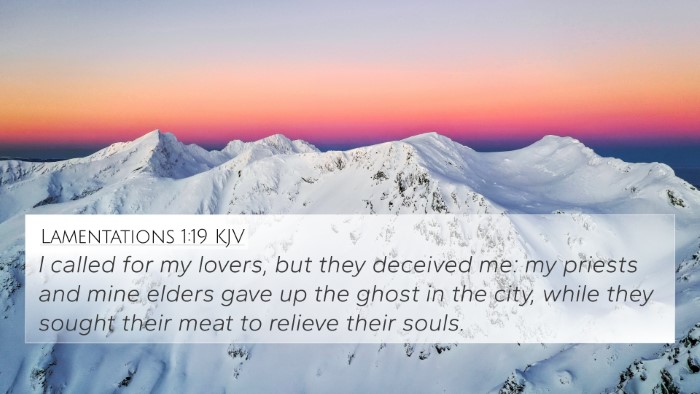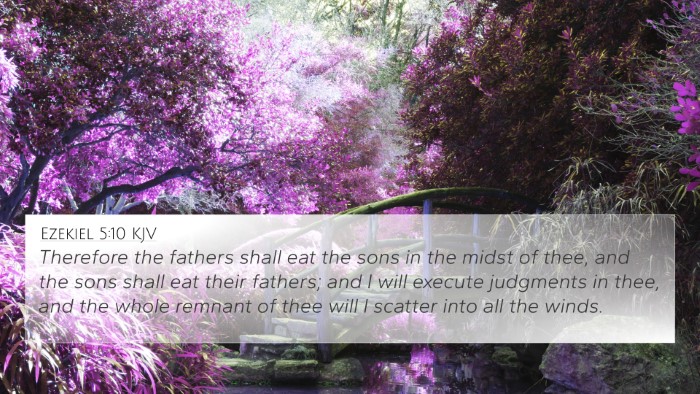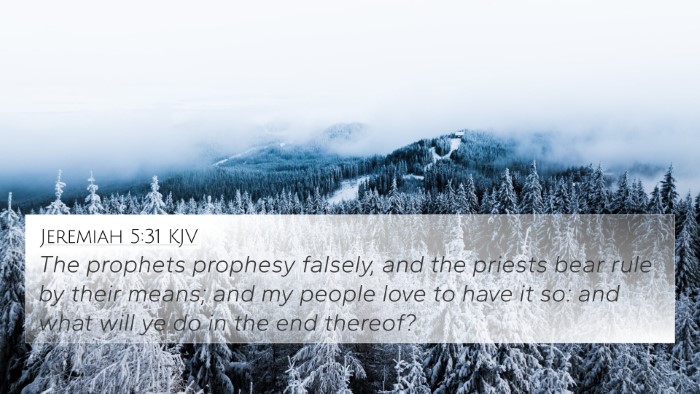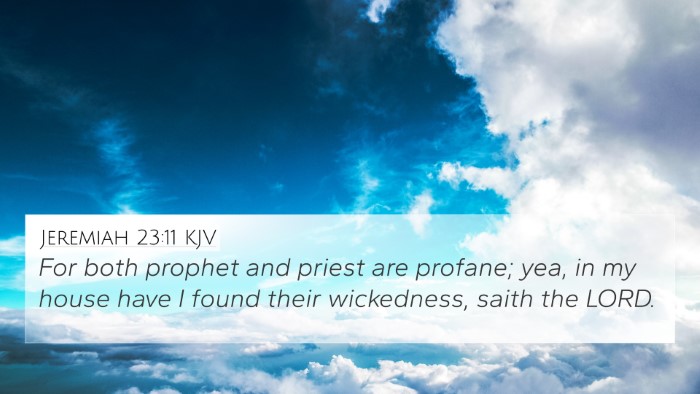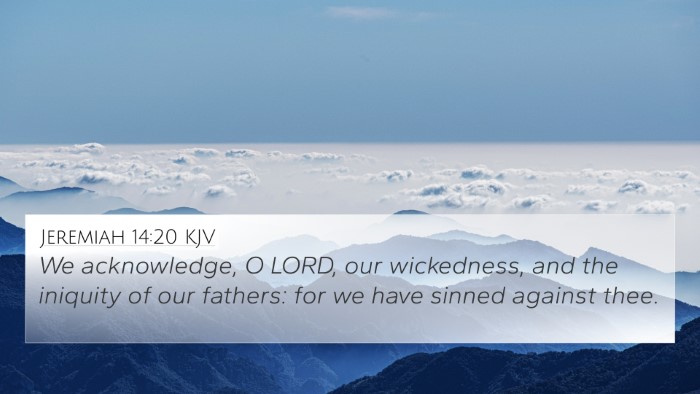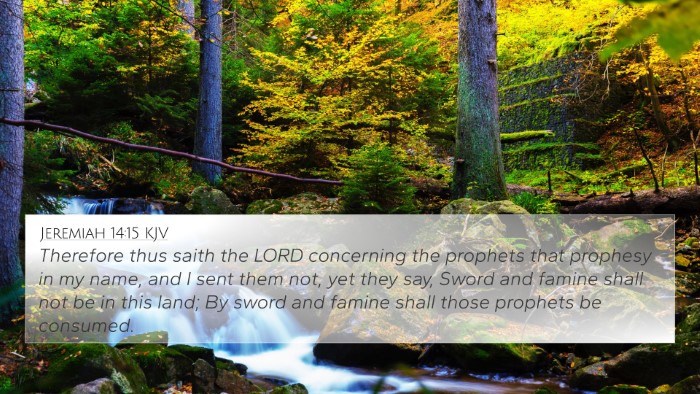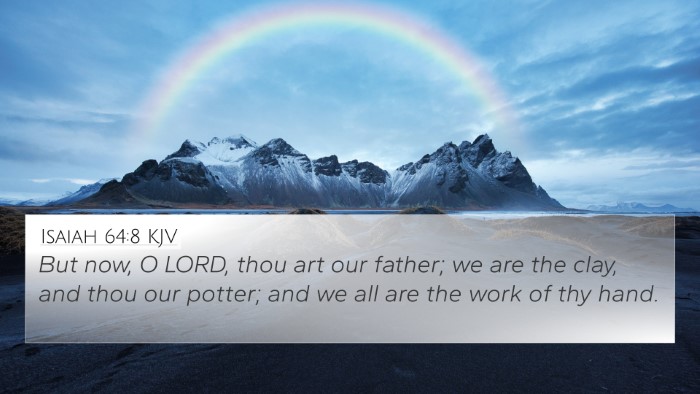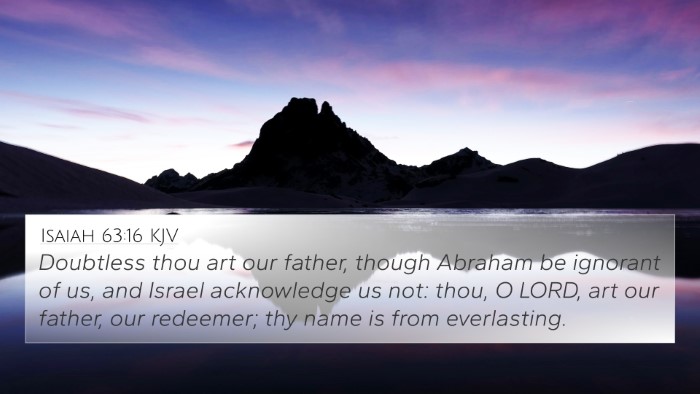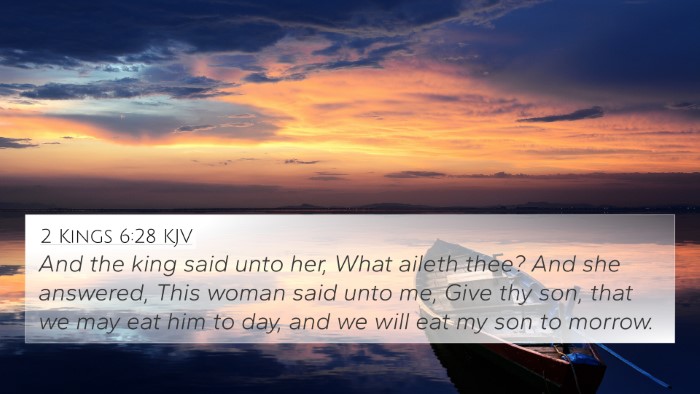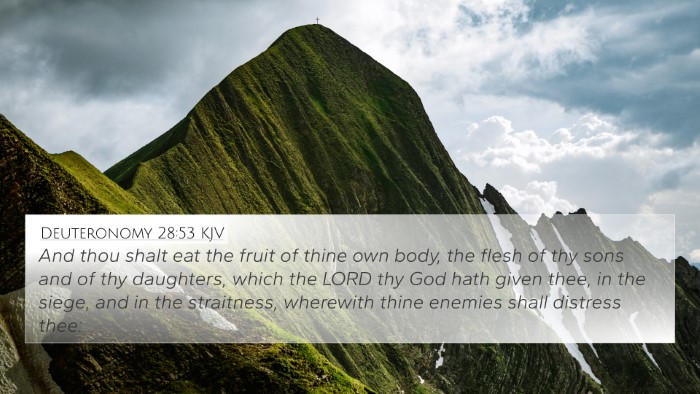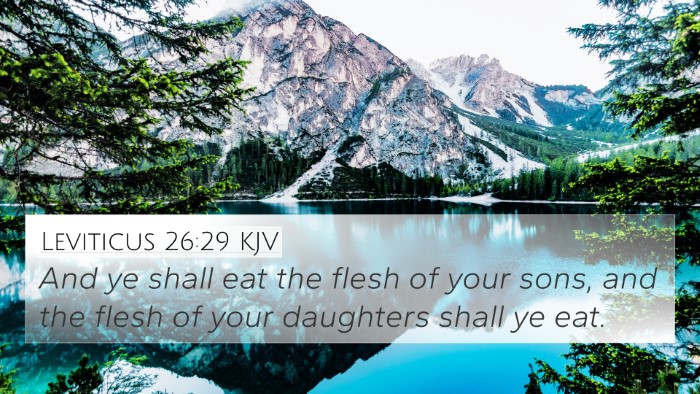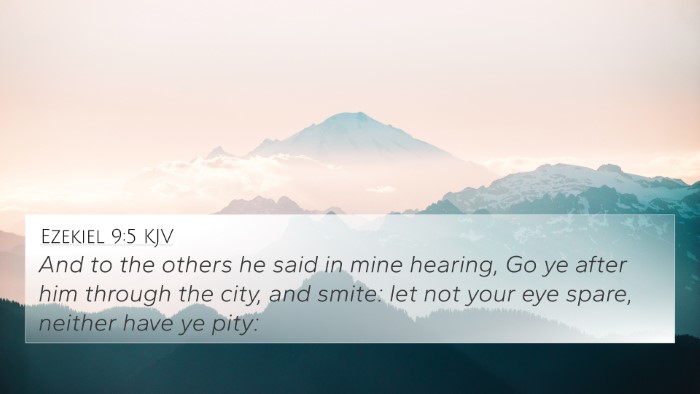Lamentations 2:20 - Summary and Interpretation
Lamentations 2:20 states: "Look, O Lord, and consider to whom You have done this. Should the women eat their offspring, the children they have cuddled? Should priest and prophet be slain in the sanctuary of the Lord?"
This verse presents a poignant cry from Jerusalem amid its desolation and suffering after the fall to Babylon. The deep anguish it conveys serves as a stark reminder of the consequences of sin and the tragedy of loss.
Analysis of Key Themes
In this verse, several critical themes emerge:
- Divine Awareness: The speaker implores God to look upon the horror faced by His people, indicating a belief that God is attentive to suffering.
- The Severity of Affliction: The mention of women eating their own children epitomizes the dire circumstances and extreme measures resorted to during famine and siege.
- Sacred Spaces Desecrated: The reference to priests and prophets meeting death within the sanctuary underscores the seriousness of spiritual decrepitude and societal collapse.
Verse Context and Reflection
This lament follows a series of reflections on the devastation of Jerusalem, attributed to the people’s rebellion against God. The author questions how far the calamity has spread and highlights the reversal of societal norms, where even the most sacred and protected aspects of life have been shattered.
Connections Between Bible Verses
Lamentations 2:20 can be cross-referenced with numerous scriptures that elaborate on similar themes of suffering, divine judgment, and the seriousness of sin. Below are some pertinent connections:
- Deuteronomy 28:53-57: Discusses the curses that accompany disobedience to God, including extreme hunger.
- Jeremiah 19:9: Jeremiah prophesies about the desperate conditions that would lead to such actions among the people of Jerusalem.
- Psalm 79:1-2: Reflects on the destruction of Jerusalem and the suffering of its inhabitants.
- Ezekiel 5:10: Describes the drastic measures taken during a siege, including cannibalism.
- Isaiah 49:15: God’s compassion is questioned in light of suffering, resonating with the plea in Lamentations.
- Matthew 24:19: Jesus speaks of woe during times of tribulation, evoking similar despair.
- Romans 8:22: Paul highlights the groaning of creation, underlining the theme of suffering in the world.
Commentary Insights
Various commentaries provide profound insights into this verse:
Matthew Henry
Henry emphasizes the sincerity of the lament, pointing to the severity of the suffering faced by both mothers and priests. He reflects on the divine judgment that leads to such calamity and serves as a reminder of the cost of turning away from God.
Albert Barnes
Barnes expounds on the rhetorical questioning in the verse, suggesting it highlights the inexplicable nature of their suffering. He stresses the contrast between God’s holiness and the destructive state of His chosen people, amplifying the sense of loss and mourning.
Adam Clarke
Clarke offers a historical view, relating the verse to actual events during the Babylonian siege, illustrating the tragic outcomes of disobedience to God. His commentary underscores the gravity of the situation wherein even sacred rites are disrupted by violence and destruction.
Thematic Bible Verse Connections
In further understanding the depth of Lamentations 2:20, we can link this lament to a broader narrative of suffering and redemption throughout the Bible. Cross-referencing biblical texts often reveals the interconnectedness of themes such as suffering, judgment, and the hope for restoration.
For example, the parallels between the plight described in Lamentations and the prophecies found in Isaiah, which foretell both judgment and eventual restoration, serve as a historical and thematic bridge. Similarly, exploring passages in the New Testament provides insights into how suffering leads to redemption and hope in Christ.
Practical Application and Reflection
Engaging with Lamentations 2:20 prompts personal reflection on the nature of suffering, both collectively and individually. Readers can contemplate:
-
Human Suffering: How does this verse speak to the realities faced by individuals today amidst despair and loss?
-
Divine Presence: In times of trauma, where do we find God's presence, as depicted in this lament?
-
Moral Responsibility: How can the societal breakdown described in Lamentations remind us to uphold justice and compassion within our communities?
-
Hope in Despair: What do these verses reveal about the hope for restoration and the possibility of change after suffering?
Cross-Referencing in Bible Study
Utilizing tools for cross-referencing and a Bible concordance can enrich one’s study of verses like Lamentations 2:20. By exploring thematic connections and shared motifs across scripture, readers can glean deeper theological insights.
Resources for Bible Cross-Referencing Include:
- Bible Cross-reference Guide
- Comprehensive Bible Cross-reference Materials
- Bible Chain References
- Bible Reference Resources
